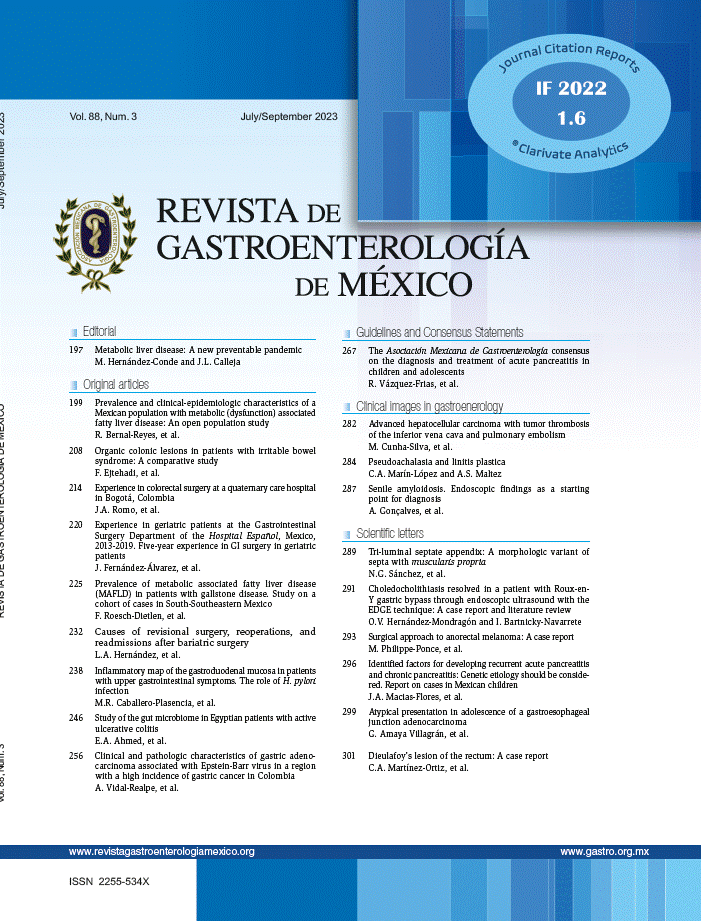We appreciate the attention and interest shown by the authors of the letter regarding our recently published article.1 We value all efforts made in enriching academic debate, particularly in a field as dynamic as that of irritable bowel syndrome (IBS).
However, we believe it is appropriate to clarify and respond to various observations put forth, and do so constructively, defending the methodology employed in our study. Concerning the clinical characterization of the study participants, we described the diagnostic criteria applied to the patients with IBS (Rome IV criteria) and the exclusion criteria implemented for the controls in the Methods section. We understand that the “absence of disease” is not equivalent to an absolute health status, but in the context of observational studies, said definition responds to widely accepted operative criteria in disorders of gut-brain interaction. It is important to remember that IBS is not an exclusion diagnosis, but rather an entity that is defined by the presence of “positive symptoms”, in the absence of alarm symptoms. Without a doubt, there is currently no precise definition of “healthy controls” in IBS and is something that needs to be worked on.2
Regarding the terminology employed to describe “dietary characteristics”, we consider that the intake of macronutrients and micronutrients is indeed an integral part of the dietary profile. Negating their value by not including specific food patterns, types of sugar, or “trigger foods” fails to recognize the usefulness of objective nutritional analyses, especially in contexts in which there are still no local validated databases, as occurs with the exact FODMAP content in Mexican foods. In the same way, the qualitative analysis of FODMAPs was carried out transparently and was duly contextualized. It is striking that the validity of this strategy is criticized, without providing viable methodological alternatives or direct evidence in a local population. The only such reference corresponds to a general review, not a specific validation in the Mexican environment.
On the other hand, we recognize that the differences between groups in variables, such as age or body mass index, are possible sources of bias and we appreciate the observation. As to the volunteer recruitment procedure, it was carried out in strict adherence to ethics norms, with informed consent and no compensation, as stated in the principles of the Declaration of Helsinki. Any suggestion of coercion is unfounded and unfortunate.
Finally, we share the interest in exploring aspects, such as eating disorders, in this population, but that was beyond the scope of our study, which focused on comparing general intake profiles. Including multiple clinical, psychologic, and social dimensions in a single design may be ideal but is not always feasible or methodologically adequate. Our agreement as to the relevance of the relationship between eating disorders and IBS is demonstrated by the recent evaluation of said association by our working group.3 With respect to sample size, it was clearly a limitation of our study, as was the tool utilized and the age differences between groups, all of which we stated at the end of the manuscript.
In conclusion, we appreciate all constructive criticism, but we emphasize the importance of making pertinent observations, based on a thorough reading of the manuscript and with relevant references. Opinions or generalizations that lack robust evidence must be clearly distinguished from rigorous scientific analysis.




